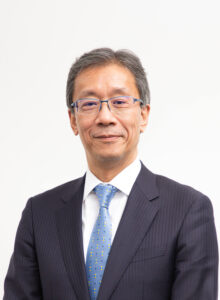Message from the President

President FUJII Teruo (The University of Tokyo)
National universities in Japan have an important responsibility to serve as the centers of knowledge that support the development of the country. We will continue our efforts to keep creating new knowledge and strengthen our activities while engaging in dialogue with various members of society, including individuals in Japan, so that national universities as a whole can contribute to enhancing the national sum of knowledge.
Today, Japan faces various challenges, including a rapid population decline and decreasing industrial competitiveness. Overcoming these challenges and achieving well-being for All of the people in Japan requires us to raise the overall national level of knowledge, promote cutting-edge research that leads to industrial innovation, and take an active part in regional revitalization and invigoration.
To achieve these, in March 2025, the Japan Association of National Universities (JANU) announced “The Future Vision of Japan’s National Universities”, envisioning our path toward 2040. This vision expresses the determination of all 85 national universities, which have developed as the centers of knowledge around the country, to unite to form a national university system and implement necessary measures to tackle the challenge of creating an innovative Japanese society.
Specifically, those measures include 1) increasing the percentages of students advancing to higher education in provincial areas and among women, as well as increasing the percentage of international students to 30% of each university’s maximum number of students to introduce a diverse range of talent from around the world; 2) tripling the number of doctoral recipients, who are expected to lead pioneering research at a global level and work as key players in a variety of fields; 3) playing a leading role in regional revitalization while promoting interuniversity collaboration; 4) improving research environments and the treatment of researchers at university hospitals while enhancing the quality of teacher training; 5) expanding the overall pool of researchers and enhancing their research environments; 6) raising the overall level of higher education through collaboration between national, public, and private universities, promoting the active participation
of women, and realizing an inclusive society for all people, including those with disabilities.
To fulfill our determination to implement these measures, we will work to ensure sincere and thorough discussions among national universities and between national universities and stakeholders around Japan. We are determined to maximize the expected roles and current functions of the entire national university system while taking advantage of the distinctive features of the respective universities.
In conclusion, We would like to emphasize that the value of national universities lies in their capabilities to contribute to social development and the happiness of people and that the primary beneficiaries of their activities, including education and research, are the nation and its people as a whole. We hope to further enrich our communication with various members of society, including individuals in Japan, to gain their understanding of the activities of national universities. We request that you support and cooperate with us as a form of future-oriented investment in advancement of Japanese society.
June 25, 2025